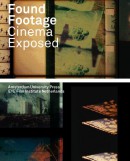Product informatie
- ISBN 9789089645227
- ISBN 10 9089645225
- Druk 1
- Bindwijze Paperback
- Taal Engels
- Uitgever Amsterdam University Press
- Onderwerp Film en televisie
- Beschikbaar sinds 25 Februari 2013
Samenvatting
After the Break - 2[-]TELEVISUAL CULTURE - 3[-]Table of Contents - 6[-]After the Break, Television Theory Today - 8[-]1. Questioning the crisis - 12[-]2. New paradigms - 14[-]3. New concepts - 15[-]4. Concluding thoughts - 16[-]References - 16[-]Part I: Questioning the crisis - 20[-]\'Unreading\' contemporary television - 22[-]1. Analyzing quality television=and why it is redundant - 24[-]2. The complexities of television as medium - 26[-]3. Unreading television - 28[-]4. Conclusion - 31[-]References - 32[-]Caught, Critical versus everyday perspectives on television - 36[-]1. Media 2.0 and the cultural studies perspective on television - 38[-]2. The mass communication paradigm in its protoprofessionalized version - 40[-]3. Conclusion - 47[-]Notes - 48[-]References - 49[-]The persistence ... of national TV, Language and cultural proximity in Flemish fiction - 52[-]1. National television in a global era - 52[-]2. National viewing - 55[-]3. The Flemish case - 57[-]4. Conclusion - 61[-]Notes - 62[-]References - 62[-]Constructing television, Thirty years that froze an otherwise dynamic medium - 66[-]1. An era of constraint - 68[-]2. The public and the nation: lessons from the Third Reich - 70[-]3. A television freeze and a Cold War - 72[-]4. Contextualizing constraint - 74[-]Notes - 78[-]References - 78[-]When old media never stopped being new, Television\'s history as an ongoing experiment - 80[-]1. Always already new: the ongoing transformation of television - 81[-]2. Experimental systems - 83[-]3. Experiments in television - 85[-]4. Experimental moments of broadcast/network television - 88[-]5. Broadcast/network television as an ongoing experiment - 91[-]6. Post-network experiments - 92[-]7. Closing remark on television studies - 94[-]Notes - 95[-]References - 96[-]Part II: New paradigms - 100[-]Unblackboxing production, What media studies can learn from actor-network theory - 102[-]1. ANT - a very short introduction - 103[-]2. A mechanics of power - 105[-]3. Media from an ANT perspective - 106[-]4. The media\'s mechanics of power - 108[-]5. A teaching moment - 110[-]6. Conclusion - 113[-]Notes - 114[-]References - 114[-]Convergence thinking, information theory and labour in \'end of television\' studies - 118[-]1. Introduction - 118[-]2. The empirical tendency and information theory - 120[-]3. Convergence thinking - 124[-]4. Conclusion - 127[-]Notes - 129[-]References - 129[-]Television memory after the end of television history? - 132[-]1. Television memory and television history - 133[-]2. Television memory and audience research - 134[-]3. The complexity of the concept of television memory - 136[-]4. Representations of the past on television: television as memory maker - 137[-]5. Towards a new participative television memory - 140[-]6. Conclusion - 142[-]Notes - 143[-]References - 143[-]Part III: New concepts - 146[-]YouTube beyond technology and cultural form - 148[-]1. Introduction - 148[-]2. YouTube as technology: homecasting - 149[-]3. YouTube as social practice: video-sharing - 151[-]4. YouTube as cultural form: snippets - 154[-]5. Conclusion - 157[-]Notes - 158[-]References - 159[-]Move along folks, just move along, there\'s nothing to see, Transience, televisuality and the paradox of anamorphosis - 162[-]Notes - 175[-]References - 175[-]Barry Chappell\'s Fine Art Showcase. Apparitional TV, aesthetic value, and the art market - 180[-]1. The value of art on TV - 180[-]2. The art of selling the work of art - 183[-]3. Apparitional television - 185[-]4. Conclusion - 190[-]Notes - 191[-]References - 191[-]About the authors - 194[-]Index - 198[-]
Meer boeken van uitgever Amsterdam University Press
Meer boeken met de onderwerpen Film en televisie
Veel gestelde vragenmeer antwoorden
Hoe werkt Resale.nl?
Je kunt op de website advertentie(s) plaatsen van de boeken die u wilt verkopen. Een potentiële koper neemt dan contact met je op om samen een prijs af te spreken en de transactie verder af te handelen. Houdt hierbij onze aanbevelingen voor een veilige transactie in gedachten en voorkomt dat je slachtoffer wordt van oplichting.
Hoe kom ik in contact met de verkoper?
Je kunt een reactie versturen door bij de betreffende advertentie van de verkoper op de knop ‘doe een bod’ te drukken. Je kunt nu een bod doen op de advertentie en een persoonlijk bericht toevoegen. Het verstuurde bod brengt je in contact met de verkoper via e-mail.
Wat zijn de kosten voor het verkopen van mijn studieboeken?
Je kunt geheel gratis gebruik maken van de diensten van Resale.nl. Resale.nl haalt zijn inkomsten uit advertenties.
Hoe kan ik een boek kopen?
Resale.nl werkt globaal op de volgende manier:
- Zoek via het zoekveld het studieboek dat je wilt kopen.
- Uit de zoekresultaten kies je het studieboek waar je geïnteresseerd in bent.
- Op de detailpagina van het studieboek kun je een overzicht vinden van de personen die het studieboek verkopen.
- Je kunt nu een bod plaatsen door op de button te klikken. Het bod wordt via e-mail aan de verkoper verzonden.
- De verkoper van het studieboek neemt contact met je op door een reactie te geven op het bod dat je hebt verzonden. Met de verkoper kun je gezamenlijk een prijs afspreken. Houdt hierbij onze aanbevelingen voor een veilige overdracht in gedachten en voorkom dat u slachtoffer wordt van oplichting.
Hoe weet ik wat ik koop?
Om te achterhalen of wat je koopt ook daadwerkelijk is wat er wordt geadverteerd is het verstandig om bij de verkoper langs te gaan en het aangebodene te bezichtigen. Doe je dit niet, dan loopt je een zeker risico. Onder het kopje ‘Hoe kan ik de kans op misbruik verkleinen’ kun je meer over dit onderwerp vinden.
Kopers over Resale.nl
bart van gijsel
"Ik ben erg tevreden over deze verkoper de familie thus. Goede snelle levering."
Patrice Michel
"De verkoper heeft er alles aan gedaan om het door mij bestelde product zo snel mogelijk naar mij toe te krijgen. Heeft me van iedere stap op de hoogte ..."
marjolein
"Besteeling snel bezorg, in goede staat net zoals beschrijving en goede communicatie met verkoper!"
marjolein
"Goed contact, snel en in goede orde ontvangen. Staat van het boek was zo goed als nieuw!"
hilda1
"goede medewerking en hulp dank u wel"
Tineke
"Het bestelde werd netjes en snel afgeleverd. De prijs was goed."
stacy
"Goed verpaktBoek ziet er mooi uit"
elisa
"Goede levering alleen jammer dat er niet bij was gezet dat er al in geschreven was"
Elly
"Verkoper reageerde snel op mijn emails en heeft ook het boek snel opgestuurd.Het boek was niet van nieuw te onderscheiden. Was waarschijnlijk niet gebruikt. ..."
Gerard+[2]
"Prettig contact gehad en goed zaken kunnen doen."
















